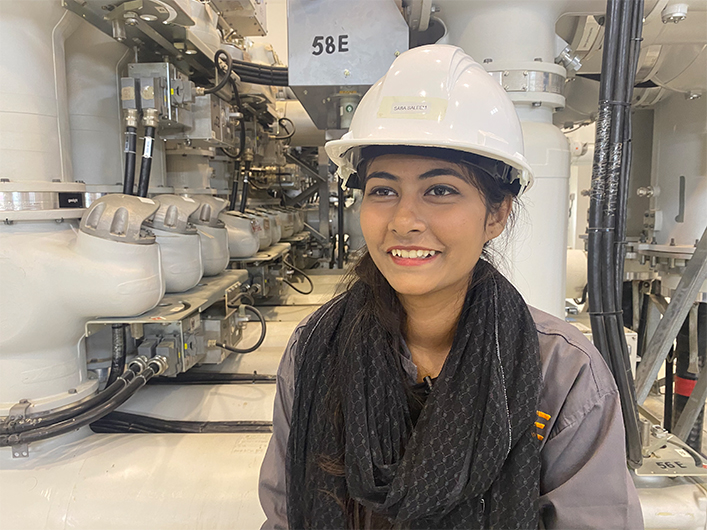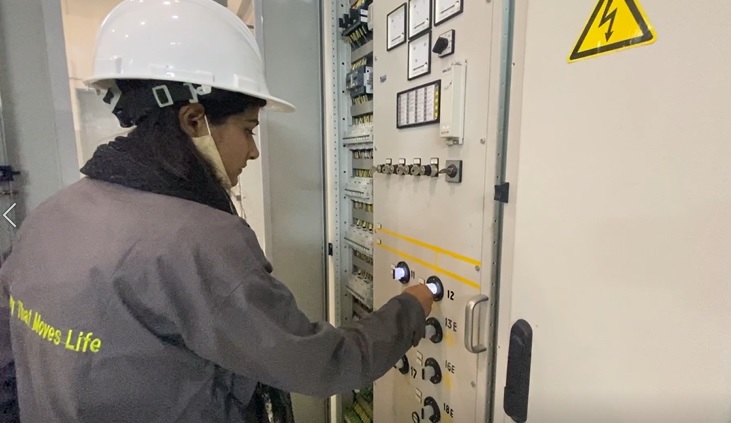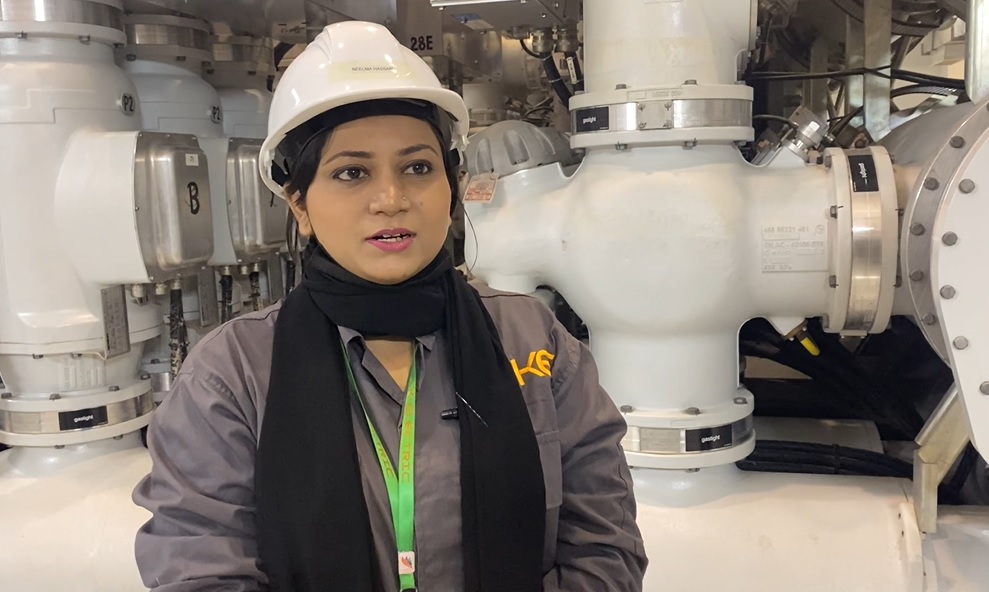KARACHI: Saba Saleem was a little nervous when she first read her appointment letter for the position of grid operating officer with K-Electric, a power supply company that operates in Pakistan’s southern city of Karachi.
Saleem is one of five women appointed by K-Electric a little over two weeks ago to manage grid stations in its system, a job previously performed entirely by men.
A study conducted by WePower and the World Bank’s Energy Sector Management Assistance Program in 2020 said women make up just a little over four percent of the overall workforce in power sector organizations in Pakistan.
“When I got the appointment letter, I wondered if I could perform this job,” Saleem told Arab News last week. “Now I feel that I fulfil my responsibilities quite well.”
“This is not a desk job,” she added. “We have to remain very attentive and proactive for about eight to nine hours every day.”

Saba Saleem, one of the first women grid operating officers in Pakistan, speaks to Arab News in Karachi, Pakistan, on March 12, 2021. (AN Photo)
A power grid is part of an interconnected supply network that delivers electricity to consumers. Saleem and two women colleagues, Neelma Nawab and Tuba Khan, have been appointed to ensure the smooth working of the Gulshan Grid Station, which is among 68 other KE facilities that provide electricity to households in the seaside metropolis of 15 million people.
The other two newly appointed female employees are Saadia Sehar and Alisha Aman Ansari, posted at the Qayumabad Grid Station.
Sadia Dada, KE’s Chief Marketing and Communication Officer told Arab News this was the first time in the country’s history that women were appointed grid officers in the power sector. In 2019, KE also inducted women meter readers into its force.
Pakistan, with an almost gender equal population, ranks very low at 151/153 on the World Economic Forum’s (WEF) Gender Gap Index 2020. About 80 percent of the female population still struggles to be part of the documented economy.

Saba Saleem, one of the first women grid operating officers in Pakistan, works at a grid station in Karachi, Pakistan, on March 12, 2021. (AN Photo)
The newly appointed grid operators said the recruitment process for the job was not easy. Another hindrance was the reluctance at first of families, who did not think the women were suited to such a technical job.
“When I got this opportunity, all were confused as no one knew before that girls could also join this field, because it’s a technical field and our work is at the operational level,” Neelam Hassan said. “So, my family members also had a different feeling and I had family issues with regard to my safety.”
Eventually, Hassan said, she was able to convince her family that women could also join “such a technical field.”

Neelma Nawab, one of the first women grid operating officers in Pakistan, speaks to Arab News in Karachi, Pakistan, on March 12, 2021. (AN Photo)
Saleem said she felt proud that she and her colleagues had broken the taboo that such roles were not suitable for women.
“There is an assumption that women cannot do work in many fields, closing doors for them but as you see I am standing here at the grid station,” Saleem said. “Such stereotypes have also reduced employment opportunities for them … but my presence here shows that women are not behind anyone. They just need more opportunities.”


















